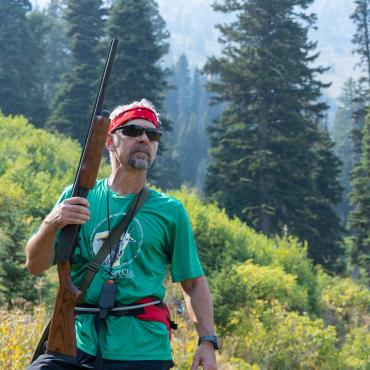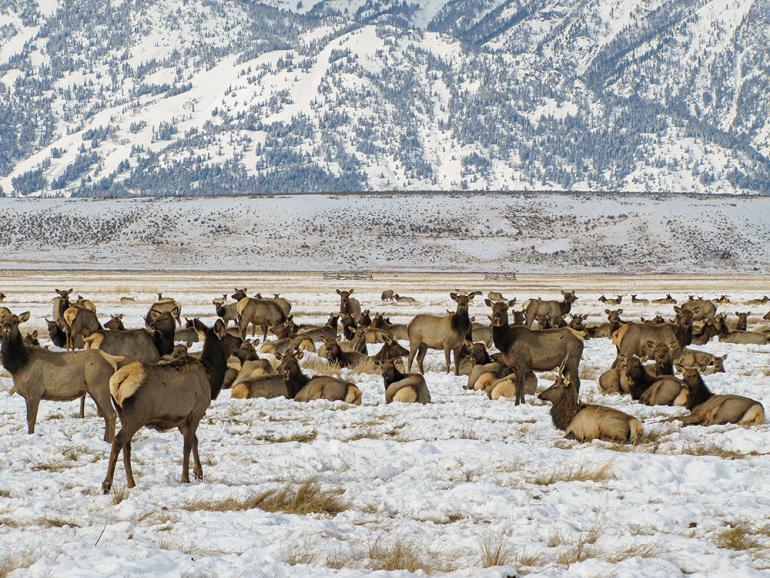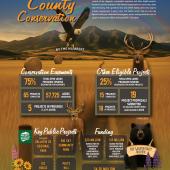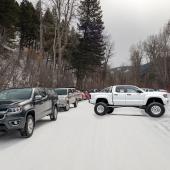Educated Opinion
Keeping track of recent legislation.
Democracy cannot succeed unless those who express their choices are prepared to choose wisely. The real safeguard of democracy, therefore, is education. ―Franklin D. Roosevelt
The tone of any Montana legislative session is set at the ballot box, a couple of months before the session officially gets started. It’s a full-time job keeping up with all the proposed legislation during the session; that’s why it’s best to educate yourself now, ahead of the 2022 election, so you vote for a candidate who represents your views and not just a political party. The 2021 session had some troubling bills when it came to DIY hunters (see “Fine Print,” Fall 2021, p. 106). There were also several whoppers relating to access and conservation easements, both of which are important to anyone who likes to recreate on public land. Let’s look at some of the issues to make sure your representative is on the same side of the issue as you are.
Habitat Montana Program
Habitat Montana is a fund that was created from the purchase of big-game licenses, with revenues earmarked for the protection of wildlife habitat. Since the fund’s inception in 1987, Fish, Wildlife & Parks has been able to purchase around 450,000 acres for wildlife management areas and invested in over 440,000 acres of conservation easements. All of this has been done without ever dipping into Montana’s general fund. So, it comes as a shock when legislators introduce bills intending to undermine this great program. Two of the more egregious bills were HB 697 (Rep. Kassmier, R-Fort Benton) and SB 115 (Sen. Regier, R-Kalispell).
HB 697
In a nutshell, HB 697 was going to pillage Habitat Montana by using the funds to pay for crop damage from wildlife. There were limitations on who could apply for the reimbursement, but one of the main criteria was that elk numbers had to be 200 percent over objective in that area. (Side note: elk population “objectives” are based on landowner tolerance and dictated through an elk-management plan. Montana’s current plan is 15 years old and in need of an update.) This bill was supported by the United Property Owners of Montana, Montana Stockgrowers Association, the Montana Farm Bureau Federation, and some private ranchers and landowners. Montana FWP and a host of conservation groups opposed the bill, mainly on the concern of Habitat Montana funding. The bill passed out of the House Agriculture Committee and passed a floor vote, but was amended and kicked back to appropriation, where it eventually died.
SB 115
SB 115 is an act clarifying the approval process for land- and water-related acquisitions by FWP. In layman’s terms: when FWP uses Habitat Montana funds for an easement or land/water purchase, it has to be approved by the Montana Land Board. The original threshold set by SB 115 was any acquisition of more than 100 acres or $100,000, but an amendment changed these numbers to 500 acres or $1 million. The primary concern with this bill is that it takes the final decision away from the property owners and gives it to the Montana Land Board. Put another way, an owner could enter into the agreement with FWP, spend months getting it finalized, only to have it squashed by the Land Board. This process will likely deter many landowners from participating in the program. Ultimately, SB 115 passed through both chambers and was signed into law, taking private-property choice away from conservation-minded landowners.
Easements
Beyond the attacks on the Habitat Montana easement programs, the 2021 legislature took shots at easements through nonprofits and prescriptive easements. SB 354 (Sen. Hinebauch, R-Wibaux) and HB 352 (Rep J. Hinkle, R-Belgrade) are two worth looking at.
SB 354
This bill was introduced to revise laws related to land servitude and easements. The original bill pertained primarily to signage along easements, to ensure proper use of the land. It was then amended by Rep. Usher from Billings to prohibit public-access prescriptive easements within a mile of other access points. Fearing this amendment would adversely affect Montana’s renowned Stream Access Laws, the angling community protested fiercely. After several contentious hearings, the bill returned to its original language and was eventually signed into law.
HB 352
From one of the two Hinkles representing Belgrade, HB 352 can be described as a wolf in sheep’s clothing. The law would require public access for any conservation easement using public funding. This sounds great at face value, but the bill would have had effectively killed the majority of Montana’s conservation easements and pit two good things (habitat conservation and public access) against each other. Conservation easements are a proven tool for protecting habitat against development. Requiring landowners to guarantee public access on a proposed easement only convolutes the process, and would make it unappealing to many landowners. Luckily, the House Fish, Wildlife & Parks Committee saw it this way as well, and the bill was tabled.
Nonprofits Under Attack
While one might not agree with the stances some nonprofit groups take, it doesn’t mean those nonprofits shouldn’t have the right to their opinions and be able to work toward their cause. Apparently, some folks in Helena disagreed with that sentiment and introduced several bills or amendments that would adversely affect how many nonprofits operate. SB 278 (Sen. Hertz, R-Polson), HB 677 (Rep. Bartel, R-Lewistown) and HB 693 (Rep. Mercer, R-Billings) are three that had particularly troubling language.
HB 693
This was an innocuous bill that had a troubling amendment introduced by Sen. Ankney (R-Colstrip) after the bill had passed through the House. Ankney wanted the Department of Justice to be able investigate the electioneering and related political and lobbying activities of environmental organizations in Montana, including how they’re funded and how they engage in legislation and other political issues. Sen. Ankney went as far as saying he was focused on groups that were “trying to shut down coal mining,” but the amendment and bill never defined an “environmental organization.” HB 693, with Ankney’s amendment, passed the Senate Finance and Claims Committee on a party-line vote, but then the amendment was removed on the Senate floor during the second reading. Once Ankney’s amendment was removed, the bill went through several other changes, eventually passing through both the Senate and House with broad support.
HB 677
This bill was introduced to further restrict certain nonprofit organizations from purchasing land. Given the area that Rep. Bartel represents, this appeared to be a clear attack on the American Prairie Reserve, but would have had repercussions on many other organizations such as the Rocky Mountain Elk Foundation, Pheasants Forever, and the Gallatin Valley Land Trust. After a large public outcry, HB 677 died in committee.
SB 278
Introduced by Sen. Hertz (R-Polson) and amended by Sen. Fitzpatrick (R-Great Falls), this bill takes special aim at environmental groups and other charitable organizations that have federal 501(c)(3) nonprofit status. It would penalize nonprofit groups that file lawsuits related to government actions, making any expenses and income, except those related to their property or contracts, non-tax-exempt. Additionally, 501(c)(3) organizations that fall under the requirements of the bill would have to provide a list of their donors of $50 or more to the attorney general. Sen. Hertz said this about his bill: “For decades, we’ve had nonprofit environmental groups, they’re making nothing, they sell nothing, they disrupt and sometimes they destroy industry segments all across the state... They’re destroying our tax-paying jobs in the state, this is only fair.” But once again, this bill would affect all nonprofits, not just the ones Sen. Hertz dislikes. SB 278 passed both chambers on primarily party lines, but in the end Governor Gianforte vetoed it.
To keep up with bills that affect outdoor recreation and public access in Montana, subscribe to the Public Land & Water Access Association’s (PLWA) newsletter, stay updated with Backcountry Hunters & Anglers’ (BHA) legislative alerts, and check out the Montana Wildlife Federation’s (MWF) bill tracker on their website.






